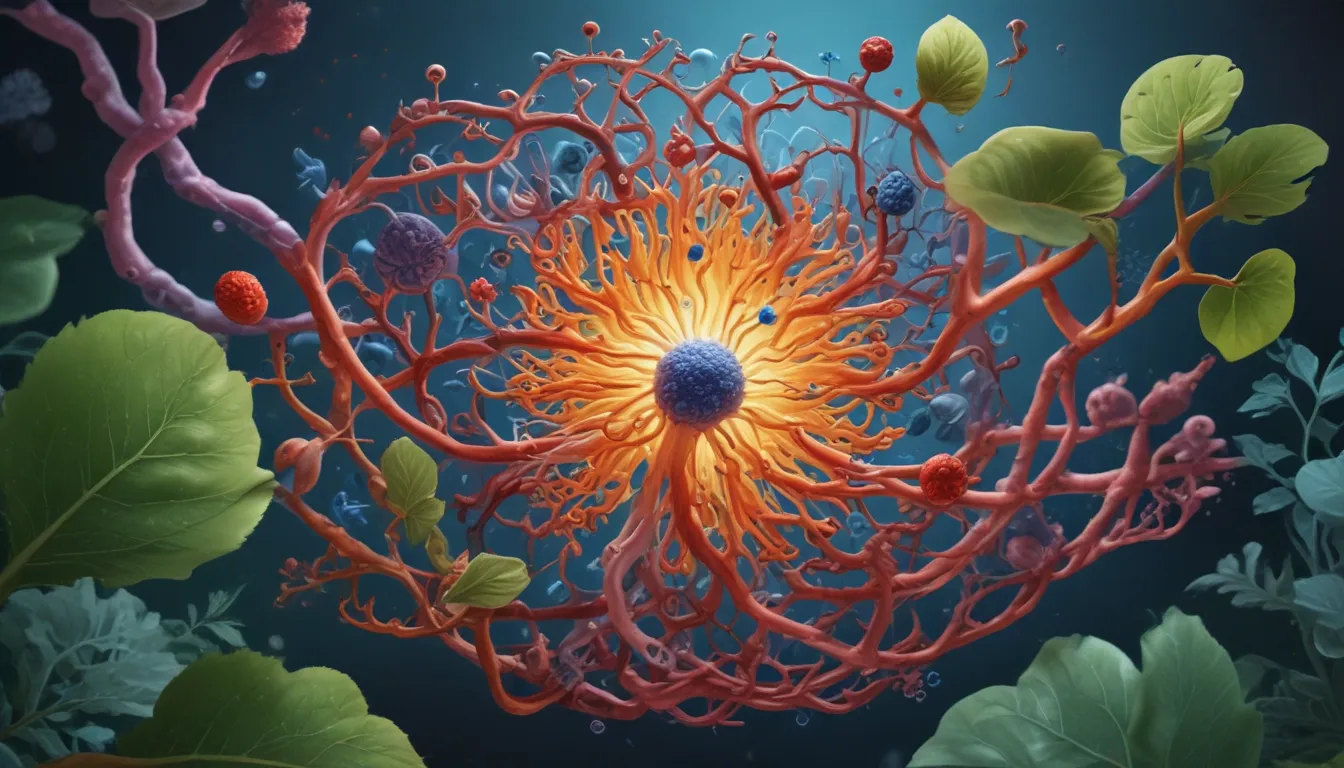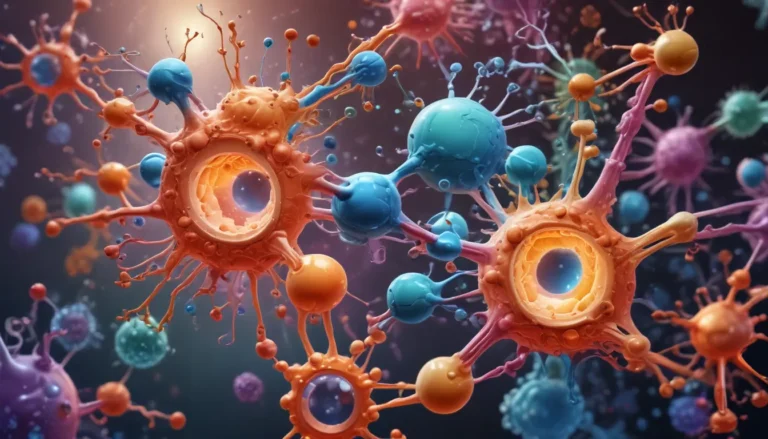A Note About Images: The images used in our articles are for illustration purposes only and may not exactly match the content. They are meant to engage readers, but the text should be relied upon for accurate information.
Are you ready to embark on a captivating journey into the world of cyclin-dependent kinases (Cdks)? These remarkable enzymes hold the key to understanding the intricate mechanisms that govern the cell cycle, DNA replication, and cell division. Join us as we unravel 15 astounding facts about Cdks and explore the essential role they play in maintaining the delicate balance of cellular life.
The Essential Role of Cdks in Cell Cycle Regulation
Cyclin-Dependent Kinases (Cdks) are a group of enzymes that serve as key regulators of the cell cycle. These proteins orchestrate the progression of a cell through crucial events such as DNA replication and cell division. Working in tandem with cyclins, a family of proteins that bind to them and activate their kinase activity, Cdks ensure the orderly transition of the cell from one phase to another.
An Array of Cdks with Unique Functions
Cdks come in various types, each with its own specific functions in cellular regulation. From the well-known Cdk1, Cdk2, Cdk4, to Cdk6, these enzymes play distinct roles in controlling different aspects of the cell cycle.
Collaboration with Cyclins for Activation
Activation of Cdks hinges on their binding with cyclins, essential proteins that form complexes with Cdks and trigger their kinase activity. This partnership between Cdks and cyclins is indispensable for regulating cell cycle progression and ensuring timely and accurate replication of genetic material.
Cdks’ Involvement in DNA Replication
Cdks play a critical role in governing the initiation and progression of DNA replication, crucial for maintaining the integrity of the genetic material within cells.
Implications in Cancer Development
Dysregulation of Cdks can lead to uncontrolled cell growth and division, a hallmark of cancer. Consequently, Cdks have become significant targets for potential therapeutic interventions in cancer treatment.
Fluctuating Activity Throughout the Cell Cycle
Cdks exhibit varying levels of activity at different stages of the cell cycle. They are most active during the G1/S and G2/M transitions, orchestrating the smooth progression of the cell through various phases.
Regulation through Phosphorylation
Phosphorylation serves as a common mechanism for regulating Cdks’ activity. Enzymes catalyze phosphorylation events that can either activate or deactivate Cdks, finely tuning their functions.
Inhibition by Specific Proteins
Cdk inhibitors (CKIs) act as gatekeepers, controlling Cdks’ activity by binding to them and preventing their interaction with cyclins, thereby halting their function.
Diverse Cellular Functions Beyond Cell Cycle Regulation
In addition to their role in cell cycle regulation, Cdks are integral to various cellular processes, including transcription, DNA repair, and apoptosis, highlighting their versatility.
Potential for Drug Development
Given their significance in diseases like cancer, Cdks have emerged as promising targets for drug development. Several Cdk inhibitors have been developed and are undergoing preclinical and clinical trials.
Evolutionary Conservation Across Species
The core components of the Cdk machinery are remarkably conserved from yeast to humans, underscoring the fundamental role Cdks play in cellular processes.
Impact on Chromosomal Stability
Dysregulation of Cdks can lead to errors in chromosome segregation, resulting in chromosomal instability—a common feature of cancer cells.
Therapeutic Implications
Due to their central role in cell cycle control and disease association, Cdks and their regulators have garnered attention as potential targets for the development of novel therapies.
Conclusion
In conclusion, cyclin-dependent kinases are pivotal players in regulating the cell cycle and orchestrating the coordination of essential cellular processes. Their involvement in cell division, DNA replication, and transcription underscores their importance in maintaining cellular integrity. By modulating the activity of different cyclins at specific phases of the cell cycle, Cdks ensure the accurate replication of DNA and proper cell division.
Moreover, Cdks serve as key players in various signaling pathways, influencing cellular behavior in response to external cues. Their dysregulation has been linked to several diseases, including cancer, making them attractive targets for therapeutic intervention. The discovery and exploration of Cdks have revolutionized our understanding of cell biology, shedding light on the intricate machinery that governs cell division.
FAQs
Q: What are cyclin-dependent kinases (Cdks)?
A: Cdks are a family of enzymes that regulate the cell cycle by phosphorylating specific proteins, driving the progression of various cellular processes.
Q: How do Cdks regulate the cell cycle?
A: Cdks form complexes with regulatory proteins called cyclins. The concentration and activity of different cyclin-Cdk complexes change during the cell cycle, ensuring precise control over cell division and DNA replication.
Q: What happens when Cdks are dysregulated?
A: Dysregulation of Cdks can lead to uncontrolled cell growth and division, which is a hallmark of cancer. Modulating Cdk activity is being explored as a potential therapeutic strategy for treating cancer.
Q: Are Cdks involved in processes other than cell division?
A: Yes, Cdks are also involved in other cellular processes, such as DNA repair, transcription, and cell differentiation. They play a crucial role in regulating the behavior of cells in response to external stimuli.
Q: Are there any drugs targeting Cdks?
A: Yes, several Cdk inhibitors have been developed and are being investigated as potential anticancer agents. These inhibitors selectively target specific Cdks and disrupt their activity, inhibiting tumor growth.
Q: How have Cdks impacted our understanding of biology?
A: Cdks have revolutionized our understanding of the cell cycle and its regulation. Their discovery has provided valuable insights into the intricate mechanisms that control cell division, DNA replication, and cellular behavior.
Embark on a fascinating journey into the realm of molecular biology as you explore the wonders of cyclin-dependent kinases. Uncover the astounding facts that shed light on the complexities of cellular regulation and gain a deeper appreciation for the delicate balance that governs life at the microscopic level. Join us in unraveling the mysteries of Cdks and immerse yourself in the captivating world of cellular processes.






